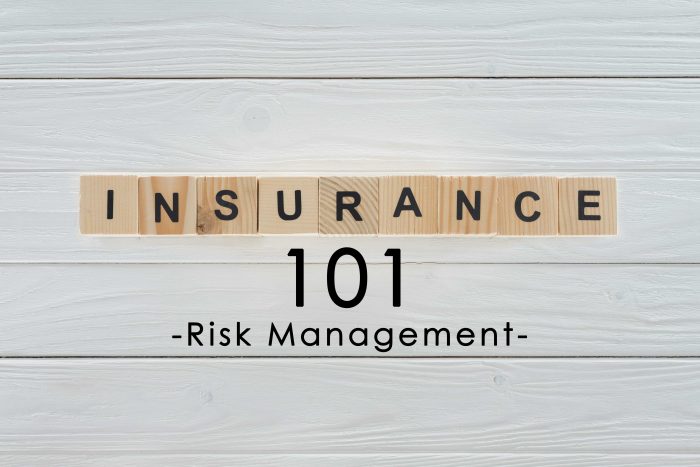Insurance Term of the Day; Risk Management
 17
17
Insurance Term of the Day; Risk Management
Have you ever thought of buying insurance as an investment? From one perspective, insurance is like investing in your future. You put a little money towards your insurance each month, and in return, your insurance company provides support when you are faced with a detrimental loss. The price of your insurance premium doesn’t seem so costly after your insurance covers a loss that could have otherwise cost you your financial stability. When threatened by a covered loss, insurance is an investment that can help provide financial security from an event. A pretty good investment, wouldn’t you say?
Now, think of it from the insurance company’s perspective. The minute your policy is effective, the insurance company becomes financially responsible for the losses that are covered by your policy. By insuring you, the insurer is risking its own financial loss. It is true that the insurer will initially receive payment from you. However, should any of the covered losses occur, you could end up costing your insurance company the cost of your premium, multiplied many times. So, for the insurers, agreeing to insure you is accepting the risk that you could end up costing them a substantial amount of money. The possibility of a loss multiplies with the number of customers the company insures. This kind of financial risk must be analyzed and managed to keep the losses at a minimum.
Understanding the extent of the risks your business could face is crucial for the success of the business. Risk management is a way of maintaining financial security by avoiding taking on too great of a risk.
To successfully manage risks, these risks must first be identified and analyzed. Basically, the risk is anything that poses the threat of causing injury, damage to property, or any other kind of loss. Monitoring risk allows insurers to control the frequency and impact of losses. Once the risks are identified, insurers may choose to work with you to mitigate any risks.
Here are a few ways that risk mitigation can benefit you as the policyholder:
- Mitigating risks gives the insured the opportunity for a better price on the premium
- By giving you an understanding of the risks you face, you can prepare for a loss in advance to avoid the risk
- Risk management helps stabilize the safety of the employees and customers of a business
Think about risk management and how you can mitigate your own risks.
Do you have questions about your insurance? Find an insurance agent near you with our Agent Finder
Search All Blogs
Search All Blogs
Read More Insurance Blogs
Embracing Tomorrow: The Practical Power of Planning for Life’s Only Certainty
Face the future with confidence: Understand how planning for life’s only certainty with life insurance can provide lasting security.
Navigating the Grandparenting Journey: Understanding Today’s Families
Grandparenting today: Learn key shifts in family dynamics to build stronger connections with your children and grandchildren.
Finding Your Financial Foundation: Understanding the Minimum Life Insurance You Need
What’s the minimum life insurance you really need? Learn about covering final expenses, debts, and providing immediate financial relief for your family.
Declutter Your Life: Beyond the Physical to a More Streamlined Existence
Tired of clutter? Discover actionable tips to declutter not just your belongings, but also your finances and digital life for a more streamlined and stress-free life.
Your Life Insurance Journey: Start Small, Dream Big, Build Security
Don’t wait for the perfect policy. Discover how starting small with life insurance is the key to building long-term financial security for your family.
Small Steps, Big Impact: Achieving a Healthier Lifestyle Without Radical Overhaul
Forget extreme diets and intense workouts. Learn how simple, everyday choices can add up to a healthier lifestyle.
Weaving Family History: The Power and Importance of a Family Timeline
More than just dates: Crafting a family timeline to connect generations and preserve memories.
Family Fitness Adventures for Lasting Memories
Ditch the couch: Active family fun for a healthier, happier life.
Beyond Upfront Payments: Pre-Planning Your Final Arrangements with Peace of Mind
Pre-planning your farewell: Affordable options and peace of mind.
Life Insurance: Investment or Protection? Decoding Cash Value Policies
Is life insurance an investment? Understanding cash value policies.










